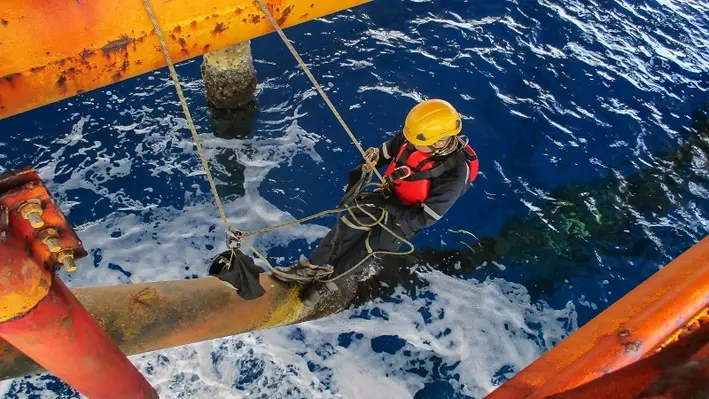
 Exciting times lie ahead for the offshore Health, Safety & Environment (HSE) community in the Gulf of Mexico as Offshore Network’s inaugural HSE GOM 2024 Conference is set to debut in Houston on 8-9 October this year.
Exciting times lie ahead for the offshore Health, Safety & Environment (HSE) community in the Gulf of Mexico as Offshore Network’s inaugural HSE GOM 2024 Conference is set to debut in Houston on 8-9 October this year.
The event, which will open its doors in the Hilton Greenway Plaza in Houston, is set to make its mark on the HSE sector with attendees gaining exclusive access to operator best practices and innovative technologies while exploring key strategies to enhance safety performances across the region.
Attendees will also hear from regulators (including the Bureau of Safety and Environmental Enforcement) on standards development, industry-leading strategies for cultivating a prosperous safety culture, and the latest cutting-edge advancements in PPE. More than 20 expert speakers are set to take to the stage to cover topics such as safety culture, process safety, planning and preparation, and technology and innovation.
With 150+ HSE decision makers set to be in attendance, ten technology demonstrations, seven networking events and a series of dedicated sessions, the conference promises to provide an insightful and fruitful experience for all who wish to develop their knowledge about all things HSE.
For more information about HSE GOM 2024, head to the website here to download the full agenda and see the complete list of speakers. For any additional enquiries, please contact Jack Heffernan at

 A comprehensive session on plug and abandonment (P&A) regulatory update will be delivered by Rafael Augusto do Couto Albuquerque, Rigs and Wells Coordinator, ANP at the soon to happening Offshore Well Intervention Latin America (OWI LATAM), to be held from 18-19 October 2022, in the city of Rio, Brazil.
A comprehensive session on plug and abandonment (P&A) regulatory update will be delivered by Rafael Augusto do Couto Albuquerque, Rigs and Wells Coordinator, ANP at the soon to happening Offshore Well Intervention Latin America (OWI LATAM), to be held from 18-19 October 2022, in the city of Rio, Brazil.
In this particular session, the region’s premier well intervention conference will provide attendees with in-depth knowledge on analysing the current offshore well decommissioning situation in Brazil to best position businesses and service providers for upcoming P&A work.
Rafael will also shed light on ways to understand the challenges faced by new operators within the Brazilian market to best prepare for future projects. Attendees are also given in-depth knowledge of new intervention technologies and ways to validate the equipment so that the operators and service providers have the opportunity to optimise their toolbox.
 OWI LATAM is poised to be the platform for discussion on the region’s offshore well intervention topics. The event features experts from international and regional companies, alongside regulatory bodies and service providers.
OWI LATAM is poised to be the platform for discussion on the region’s offshore well intervention topics. The event features experts from international and regional companies, alongside regulatory bodies and service providers.
To know more about the full programme, click here: https://www.offsnet.com/latam/conference-brochure
Or reach out to the details below:
Rachael Brand
Project Manager
T: +44 (0) 20 3409 3041
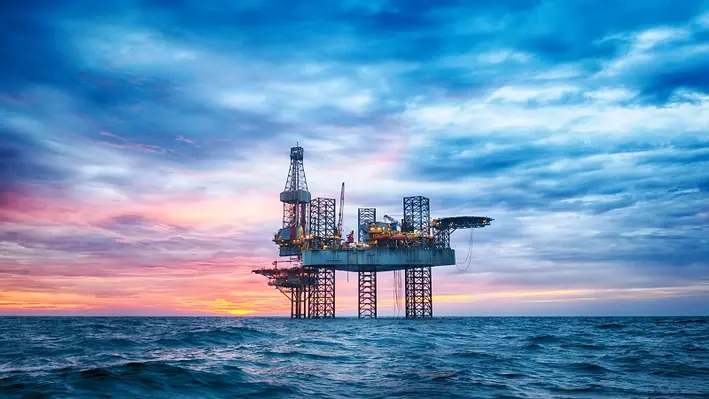

In its latest operations update, British independent upstream oil and gas company, Serica Energy, announced that its investment plans for the Bruce and Keith Light Well Intervention Vessel (LWIV) campaign is on track to take place between March and May 2024.
This follows previous campaigns in 2022 and 2023, which have delivered low-cost incremental production. The intervention is expected to restart production from the Keith field this year following successful preparation work on the Keith subsea facilities carried out in 2023. Additional well interventions from the Bruce platform are scheduled for the second half of 2024.
Besides well work on the Bruce and Keith fields, investments in 2024 include four wells in the Triton area (Bittern B1z sidetrack, Gannet E GE-05, Guillemot North West EC1 and Evelyn EV-02). The start date of the B1z sidetrack is set in March 2024. This well and the subsequent three wells are scheduled to take about three months each, meaning that drilling will continue into 2025. Serica has also exercised an option to keep the rig for a further well following completion of the fourth well in the programme (EV-02).
Serica is maturing plans for two infill wells on the Bruce field too with the aim of drilling in 2026.
Abandonment costs in 2024 are forecast to be about £14 million (pre-tax) net to Serica. These will be incurred mainly on the final decommissioning of the Arthur field, situated in the UK Southern North Sea, which was held by Tailwind Energy.
Reflecting on Serica's investment focus on enabling maximum production like from the Bruce and Triton assets, Mitch Flegg, Chief Executive of the company, said, "Production in 2024 is expected to be higher than in 2023 with guidance between 41,000 boe/d and 48,000 boe/d for the year. This reflects a range of outcomes in a year of significant activity including the speed with which the scheduled drilling and well work deliver incremental production.
"Serica's strategy of investing in its assets continues to be central to our record of consistently achieving high levels of reserves replacement, combined with increased levels of production. We are looking forward, therefore, to the start of the four well Triton area drilling programme in March, with the benefits of added production expected to start coming through in the second half of the year. During 2024 there is also an extensive programme of interventions in both platform and subsea wells on the Bruce and Keith fields. The objectives include re-establishing consistent production from the Keith field.
"In addition, Serica has a healthy portfolio of potential new projects. This includes the possible developments of the Buchan and Belinda fields, which offer the prospect of further replacement of produced reserves and incremental production from 2026 onwards. Our plans for drilling two Bruce infill wells, the first new wells on the field since 2012, are progressing and, during the next eighteen months, we will be participating in the Parkmead operated Skerryvore exploration well situated in the UK Central North Sea. As a UK taxpayer, Serica will benefit from tax relief for its share of the associated development and exploration costs.
"Serica is extremely well placed, therefore, to continue its track record of replacing reserves and increasing production. This platform has been achieved while maintaining a very strong balance sheet, which is both the result and enabler of our strategy to invest and grow organically and through disciplined M&A."
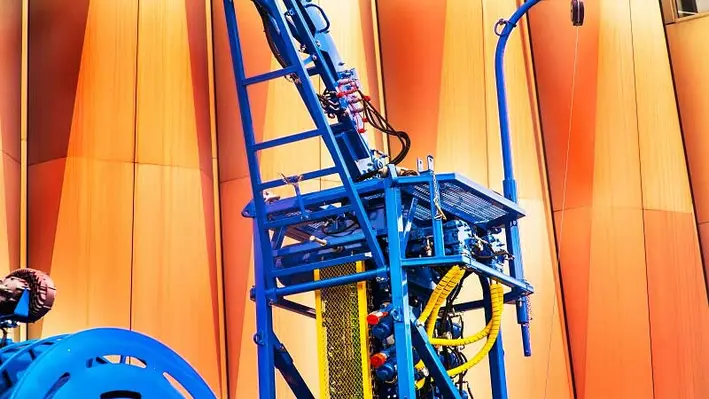

Accelerating the company's growth in the Brazilian market, Archer has secured a two-year platform drilling and well intervention contract with Trident Energy do Brasil, amounting to US$20mn.
The contract also leaves scope for an extension by an additional one year upon mutual agreement. This new award supports Archer’s growth in the Brazilian market and underscores our commitment to high-quality, innovative solutions in the energy industry.
Under the contract, Archer will provide comprehensive platform drilling services, including well interventions for regulatory requirements, workover and drilling operations, well maintenance and drilling facilities engineering, to enhance Trident Energy’s offshore assets in Brazil. The platform drilling services are set to commence during second quarter this year, initially on the Pampo PP1 platform, which follows a period of rig reactivation and recertification managed through Archer’s Platform Operations group.
Dag Skindlo, CEO of Archer, said, “We are pleased to be chosen by Trident Energy as their partner for their drilling programme. We look forward to a successful collaboration with Trident Energy and are confident in our ability to contribute to the success of their offshore operations.
"This contract builds on our continued growth as we continue to strengthen our position in the growing energy market in Brazil. Our legacy in Brazil stretches back to 2010, when we commenced our work for Equinor on the Peregrino fields, followed by the successful establishment and growth of our well services division over the last few years. We are excited about the Brazilian market and how our core services offering can support the broad spectrum of client well programmes in Brazil.”
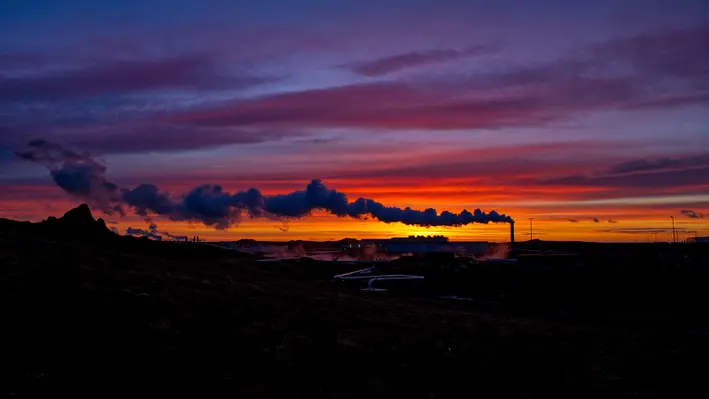
 Irish company TerraThermo Ltd and alfa8 Colab Ltd (alfa8) have announced the signing of an Investment Agreement to financially support the development of Projekt Thermo, a 12MW deep geothermal power plant project in Germany.
Irish company TerraThermo Ltd and alfa8 Colab Ltd (alfa8) have announced the signing of an Investment Agreement to financially support the development of Projekt Thermo, a 12MW deep geothermal power plant project in Germany.
The investment made by alfa8 covers the provision of up to EUR€1mn in working capital to advance Projekt Thermo to a financial close, and up to EUR€32.5mn in future financings for the project.
TerraThermo will use the working capital to undertake technical and financial due diligence on the project, with the intention of reaching financial close in Q4 2024/Q1 2025. The company is also in discussions with the European Investment Bank EIB for a potential parallel investment to fund up to EUR€32.5mn for the project, in addition to the investment already provided by alfa8.
The first stage of Projekt Thermo is to develop a 12MW ‘Hot Dry Rock’ geothermal power plant in Lower Saxony, Germany, marking the first of many deep geothermal generation and energy storage projects to be developed by TerraThermal in Europe.
John Ashbridge, CEO of TerraThermo, is “extremely pleased” to welcome alfa8 as an investor in the project, given the company’s “focus on first-of-a-kind technology and our matching visions and expectations of what can be achieved in the geothermal energy industry in the coming years.”
Erin Glen, COO of alfa8, commented, “TerraThermo is focused on delivering a first-of-a-kind, deep hot dry rock geothermal project in Europe. We are excited to team up with them to accelerate the development of geothermal technology in Europe. At alfa8, we are on a mission to deploy catalytic capital into the energy transition and promising first-of-its-kind technologies that can accelerate the path to net-zero.”
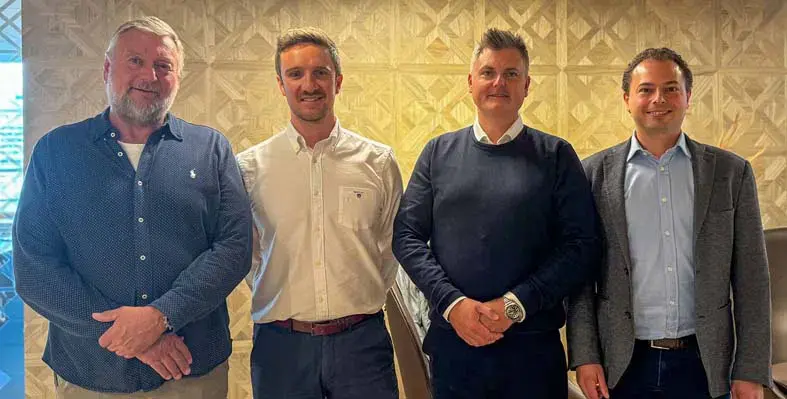
 Wells and subsurface specialist, Elemental Energies, has announced the acquisition of Norway-based well management and consultancy company, Well Expertise AS.
Wells and subsurface specialist, Elemental Energies, has announced the acquisition of Norway-based well management and consultancy company, Well Expertise AS.
Expected to generate revenues surpassing £50mn in 2024, the acquisition also adds significant growth to Elemental's North Sea expansion ambitions in Norway.
The Well Expertise acquisiton is the latest in a series of strategic acquisitions by Elemental Energies, including Vysus Senergy Wells in December 2022, Norwell Engineering in May 2023 and Sentinel Group in February 2024.
The acquisition established the companies' shared growth ambitions in well management services across oil and gas, decommissioning, geothermal, and carbon capture and storage projects.
Mike Adams, CEO of ElementalEnergies, said, “Norway is a pivotal region for us through its stable energy policy that prioritises both security and transition, aligning with our core ambitions as a business. As a mature market, Norway faces the challenge of managing new production with decommissioning and energy transition which present significant opportunity. This deal marks the start of the next chapter for both companies, as we build a strategic global wells and subsurface partner that will allow operators to outsource larger and more diverse projects with confidence.”
Sigve K. Næsheim, who will continue as CEO of Well Expertise and head up Norway operations, said, “This acquisition marks a significant milestone, underscoring our commitment to providing best-in-class well engineering and project management services. From the outset, our strategic alignment with Elemental Energies has fostered a shared vision to become the go-to global well management partner for projects spanning exploration,production, decommissioning, CCS, and geothermal. As part of Elemental Energies, we are able to expand the development opportunities for our team, bring new perspectives to our projects,and deliver expanded capabilities to our clients.”
Stig Seland, Commercial Manager of Well Expertise and one of its founders, said, "At Well Expertise, we have built long-term relationships with our customers through our collaborative and customer-first approach, which has been the cornerstone of our success. I am very pleased to announce that we can now offer an even broader range of services to our clients. Rest assured, our commitment to putting customers first will remain our primary focus as we continue to support the future of Norwegian energy."
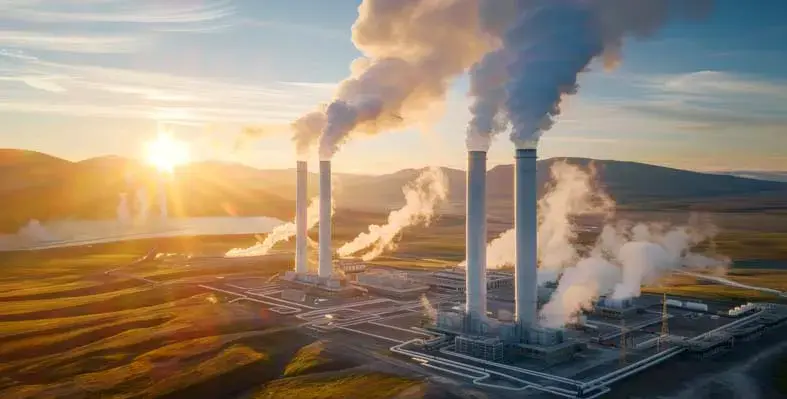
 Backed by the Ministry of Economic Affairs and Employment and Salon Kaukolämpö Oy, Lounavoima is developing a geothermal heat well storage at its waste-to-energy (WtE) plant at the Lounapuisto circular economy park in Salo.
Backed by the Ministry of Economic Affairs and Employment and Salon Kaukolämpö Oy, Lounavoima is developing a geothermal heat well storage at its waste-to-energy (WtE) plant at the Lounapuisto circular economy park in Salo.
Following good test run from the first well, three additional wells are now being constructed. The final heat well is expected to be completed by the summer of 2025.
Upon completion, the WtE plant will have six geothermal heat wells with a combined output of 6MW.
Waste heat produced by the WtE plant is stored at a depth of more than 2 kms in the geothermal heat wells to cover the district Salo's heating requirements during the winter.
The first well which was tested last winter runs 1,600-metre-deep, producing 450 MWh of energy from January to March.
A second heat well, which is undergoing tests, was drilled in the autumn of 2023 and a third was drilled in the winter of 2024. Its pipework will be completed in the late summer.
Finnish company Geomachine Oy deployed new drilling equipment which were specially designed for the exploration of the heat wells, achieving a target depth of 2,000 metres. The heat pump process was delivered by Calefa Oy.
Once all the heatwells are brought onstream, the six new geothermal heat wells will have a combined output of as much as 14 GWh a year, which is equivalent to the annual heating need of approximately 700 single-family homes.
“The heat well production will always be used first if the district heat output of the WtE plant isn’t enough. This allows us to primarily replace the need for starting oil heating plants and, in many cases, we can also avoid the need to start a backup power plant,” said Lounavoima and district heating company Salon Kaukolämpö's Managing Director Petri Onikki.
“We have such top expertise here in Finland. Even though the new technology development project has not always gone smoothly, the results have exceeded our expectations. The geothermal heat wells have a multiplying effect on heat production in Salo,” said Onikki. “The project is a successful example of concrete circular economy work at Lounapuisto,” he added.
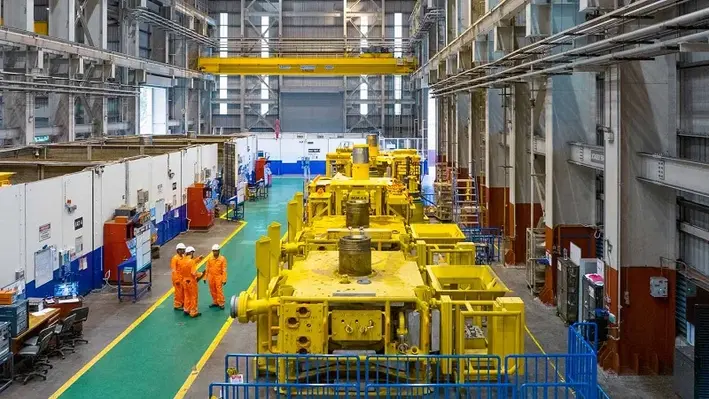

SLB, a global technology company, has announced the award of a contract by TotalEnergies to SLB OneSubsea, a joint venture between SLB, Aker Solutions and Subsea7. The project includes a 13-well subsea production system scope, including associated equipment and services, in the development of the Kaminho project, offshore Angola.
TotalEnergies will work with SLB OneSubsea to deliver a sustainable project that will improve production in Angola. During the Kaminho project’s first phase of development for the Cameia field, SLB OneSubsea will collaborate with TotalEnergies to deploy a highly configurable subsea production platform with standardised vertical monobore subsea tree, wellhead, and controls system.
“We are excited for this opportunity to unlock the large potential of the Kaminho project together with TotalEnergies,” commented Mads Hjelmeland, CEO of SLB OneSubsea. “Our collaborative contract model enables us to leverage both standardisation and highly configurable subsea production platforms, creating greater efficiencies and long-term value for this and future projects in Angola and around the world.”
The Kaminho project overall will involve more than 10 million man-hours in Angola, mainly with offshore operations and construction at local yards. SLB OneSubsea will play a significant role in supporting the Kaminho project locally in Angola for offshore operations including assembly, manufacturing of modules, installation, commissioning, and life-of-field services.

 SLB and TotalEnergies have announced a 10-year partnership to co-develop scalable digital solutions to enable access to energy resources with improved performance and efficiency while establishing a flexible framework to address key challenges including carbon capture, utilisation, and sequestration (CCUS).
SLB and TotalEnergies have announced a 10-year partnership to co-develop scalable digital solutions to enable access to energy resources with improved performance and efficiency while establishing a flexible framework to address key challenges including carbon capture, utilisation, and sequestration (CCUS).
The companies will integrate advanced digital capabilities, including the use of AI with new and existing applications on SLB’s extensible Delfi digital platform. SLB and TotalEnergies will combine digital and domain expertise to accelerate the development and deployment of these solutions at scale, benefiting TotalEnergies’ global operations and SLB’s worldwide customer base.
The partnership will initially focus on subsurface digital solutions for reservoir engineering and geoscience modelling and interpretation, leveraging Delfi on-demand reservoir simulation (ODRS).
Rakesh Jaggi, President of SLB’s Digital & Integration business, said, “Collaboration and knowledge sharing are key for our industry to continuously develop more effective ways of unlocking energy access. With this visionary partnership, we are combining the know-how and expertise of both companies to accelerate the delivery of new digital capabilities that will benefit the whole industry.”
Namita Shah, President, OneTech at TotalEnergies, commented, “Through this digital partnership we will develop cutting-edge next-generation software, digital applications and new algorithms applied to geoscience.
“Thanks to these innovative modelling technologies, we will not only be better able to utilise the analyses of geological reservoirs and basins in the oil and gas sector, to reduce emissions, but also make further progress in geological carbon storage.”
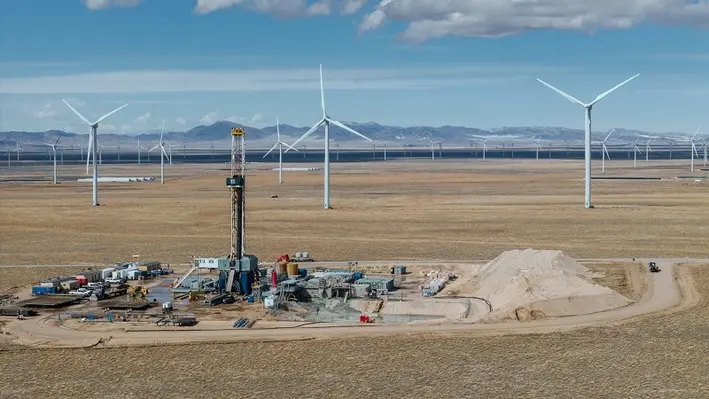
 Fervo Energy has announced the execution of two power purchase agreements (PPAs) with one of the US’ largest utility companies, Southern California Edison (SCE), for the provision of 320MW worth of geothermal energy to 350,000 homes across the state’s southern region.
Fervo Energy has announced the execution of two power purchase agreements (PPAs) with one of the US’ largest utility companies, Southern California Edison (SCE), for the provision of 320MW worth of geothermal energy to 350,000 homes across the state’s southern region.
SCE will purchase the power from Fervo Energy’s 400MW Cape Station project currently under construction in Utah, with the first 70MW phase of the project scheduled to be operational by 2026.
California Energy Commission Chair, David Hochschild, commented how the 15-year agreement marks “another milestone in California’s commitment to clean, zero-carbon electricity” and the enhanced geothermal systems will “complement our abundant wind and solar resources by providing critical baseload when those sources are limited.”
In 2021, the California Public Utilities Commission issued a mid-term reliability (MTR) mandate which requires utilities to produce 1,000MW of non-weather-dependent, non-battery, zero0emission energy to increase the reliability of the state’s electric grid. This movement catalysed demand for geothermal energy within California.
Dawn Owens, VP and Head of Development & Commercial Markets for Fervo Energy, said, “Geothermal stands as the dependable and adaptable solution for California’s journey towards a fully decarbonised grid. As electrification increases and climate change burdens already fragile infrastructure, geothermal will only play a bigger role in the US power markets.
“Fervo looks forward to continuing to meet these needs, providing firm, clean power to help balance California’s energy portfolio.”
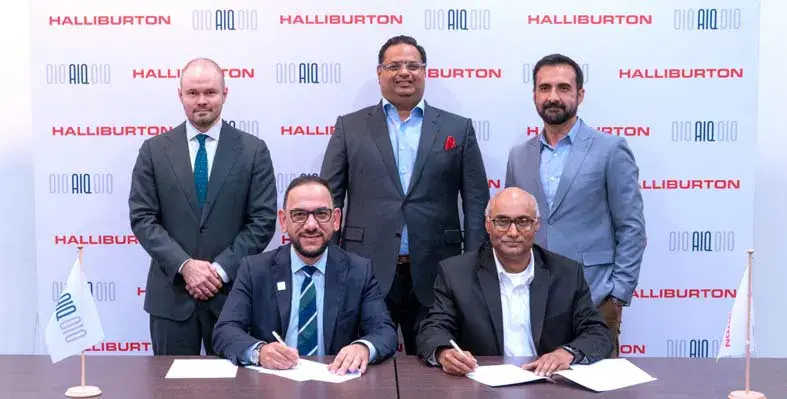
 Leveraging Halliburton's global reputation, Abu Dhabi-based energy tech provider AIQ has partnered with the oil service company's open architecture platform Landmark to expand access of its RoboWell autonomous well control (AWC) solution
Leveraging Halliburton's global reputation, Abu Dhabi-based energy tech provider AIQ has partnered with the oil service company's open architecture platform Landmark to expand access of its RoboWell autonomous well control (AWC) solution
"The combination of AIQ’s AI technology and Halliburton’s extensive industry expertise will help enable greater efficiency and maximise value for our customers’ assets," said Nagaraj Srinivasan, Senior Vice President, Landmark, Halliburton Digital Solutions, and Consulting. “This project exemplifies how Halliburton’s open architecture can help support enhanced efficiency, optimised operations, and drive future growth in the oil and gas industry."
Especially designed for gas lifted wells, RoboWell enables autonomous well operations to maximise production within specified conditions. The AI-supported advanced process control solution, which already has a market presence, boasts of a record achievement by up to 30% optimisation in gas lift consumption, with increased production of existing wells by 5%. Its well stability goals attained through real-time data utilisation also promotes not only good HSE practices but also reduced CO2 emissions.
AIQ CEO, Christopher Cooper said, "This collaboration will help progress our shared vision of how advanced AI solutions can transform the energy industry globally. Collaborating with Halliburton is part of AIQ’s wider strategy to accelerate the availability of our transformative AI products globally to support the sector through autonomous and other AI-based innovations."
The well control solution will now be made available through Halliburton’s Landmark iEnergy hybrid cloud to customers worldwide.
Landmark’s iEnergy is designed to deploy, integrate, and manage sophisticated exploration and production (E&P) applications, and connect assets in public or private cloud environments.
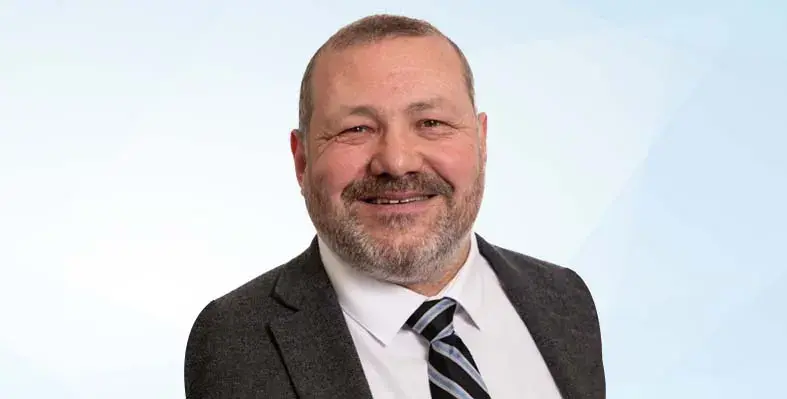
 Shell UK Ltd has signed a contract with Mermaid Subsea Services Ltd to utilise the offshore company's services for a multi-year engineering, preparation, removal and disposal (EPRD) well head severance (WHS) project in the North Sea.
Shell UK Ltd has signed a contract with Mermaid Subsea Services Ltd to utilise the offshore company's services for a multi-year engineering, preparation, removal and disposal (EPRD) well head severance (WHS) project in the North Sea.
Planned in three annual batches, the first phase of the decommissioning project is scheduled to begin later this year. The WHS solution will be delivered by a bespoke vessel for which Mermaid will be accumulating key stakeholders accross the supply chain.
The initial campaign will involve the removal of well head protection covers from the sea floor, before lifting them to the surface for transportation onshore.
The well head flow base structures will then be retrieved using specialist tooling.
The final activity will cover well head severance and recovery operations, for which bespoke underwater cutting tooling and techniques will be deployed by Mermaid.
Each stage of the project will be followed by clearance of debris, as well as seabed and over trawl surveys where necessary. All the recovered materials from the project will be put to reuse and recycling.
Scott Cormack, Regional Director for Mermaid Subsea Services (UK), said, “This a milestone contract for Mermaid and we are very grateful to Shell for putting their faith in our team. We look forward to kicking off work this year.
“The North Sea is on the cusp of a multi-decade decommissioning boom and Mermaid plans to be front and centre of that with our bespoke solutions and leading expertise.”
Page 53 of 118